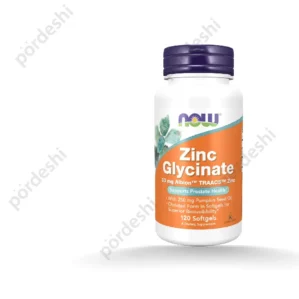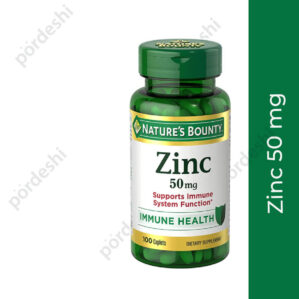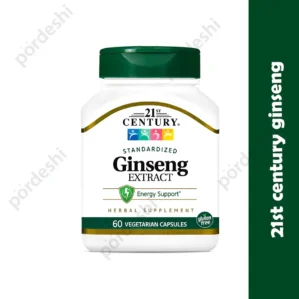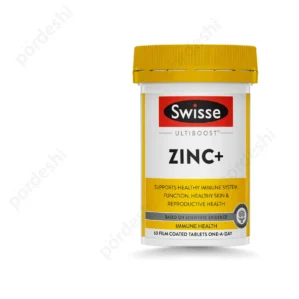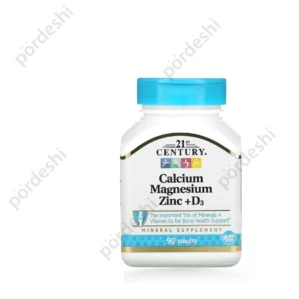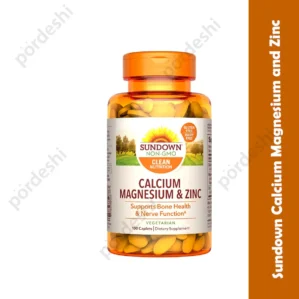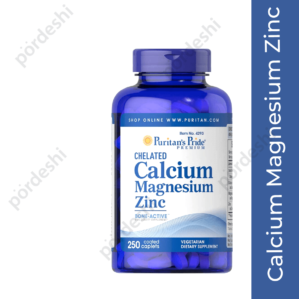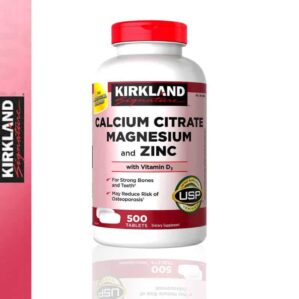zinc
Showing all 8 resultsSorted by latest
Now Zinc Glycinate
Original price was: 3,100.00৳.2,999.00৳Current price is: 2,999.00৳.Nature’s Bounty Zinc
Original price was: 1,449.00৳.1,350.00৳Current price is: 1,350.00৳.Swisse Ultiboost Zinc+ Tablets
Original price was: 2,600.00৳.2,440.00৳Current price is: 2,440.00৳.21st Century Calcium Magnesium Zinc Plus D3
Original price was: 1,800.00৳.1,749.00৳Current price is: 1,749.00৳.Sundown Calcium Magnesium and Zinc
Original price was: 1,800.00৳.1,699.00৳Current price is: 1,699.00৳.Kirkland Calcium Citrate Magnesium and Zinc
Original price was: 4,050.00৳.3,993.00৳Current price is: 3,993.00৳.The Ultimate Guide to Zinc Supplements for Fitness Enthusiasts and Health-Conscious Individuals
Introduction
It is an essential trace mineral, crucial for a multitude of bodily functions. Despite being required in small amounts, its impact on various metabolic processes and overall health is profound. For fitness enthusiasts and health-conscious individuals, understanding the benefits, sources, and appropriate use of zinc supplements can significantly enhance well-being and performance.
In this comprehensive guide, we’ll explore everything you need to know about zinc supplements, including their benefits, types, natural sources, and how to choose the best zinc supplement for your needs.
What is Zinc?
It is a trace mineral, meaning that the body requires it in small amounts. Despite this, it is necessary for almost 100 enzymes to carry out vital chemical reactions. It plays a significant role in DNA creation, cell growth, protein building, tissue repair, and immune system support. It is particularly important during periods of rapid growth, such as childhood, adolescence, and pregnancy. It also influences taste and smell.
The Recommended Dietary Allowance (RDA) for adults 19+ years is 11 mg per day for men and 8 mg per day for women. Pregnant and lactating women require slightly more, at 11 mg and 12 mg respectively. The Tolerable Upper Intake Level (UL) is set at 40 mg daily for all adults to avoid potential toxicity.
Why is Zinc Important?
Immunity
It supports the growth and normal functioning of immune cells. Even a mild or moderate deficiency can slow down the activity of lymphocytes, neutrophils, and macrophages, which are essential for protecting the body from viruses and bacteria.
Wound Healing
Adequate zinc is necessary for creating new cells, particularly collagen and fiber-like tissues, which are vital for repairing damaged cells. It also enhances immune cell activity to combat inflammation from wounds.
Who Needs Zinc?
While It is essential for everyone, certain groups may require more attention to their zinc intake:
- Pregnant and Lactating Women: Increased zinc needs for the fetus and during lactation.
- Children and Adolescents: Required for growth and development.
- Elderly: Absorption may decline with age.
- Athletes: Increased physical activity may raise zinc requirements.
Natural Sources of it:
Animal-Based Sources
- Shellfish: Oysters, crab, lobster
- Meats: Beef, pork
- Poultry: Chicken, turkey
Plant-Based Sources
- Legumes: Chickpeas, lentils, beans
- Nuts and Seeds: Pumpkin seeds, cashews
- Whole Grains: Quinoa, oats
- Fortified Breakfast Cereals
Types of Zinc Supplements
- Zinc Gluconate: Commonly found in cold remedies like lozenges.
- Zinc Acetate: Also used in lozenges to reduce cold symptoms.
- Zinc Sulfate: Often used to treat zinc deficiency.
- Zinc Picolinate: Believed to be better absorbed by the body.
- Zinc Orotate: Often touted for its superior absorption.
- Zinc Citrate: Easily absorbed and often used in dietary supplements.
Benefits of Using Zinc Supplements
Treats Zinc Deficiency
It supplements can effectively treat and prevent zinc deficiency, which can lead to various health issues.
May Improve Immune Function
Enhanced immune cell activity helps in fighting off infections and viruses more effectively.
Promotes Blood Sugar Management
It plays a role in insulin regulation, which can help manage blood sugar levels.
Helps Fight Acne
Due to its anti-inflammatory properties, It can help reduce acne symptoms.
May Improve Heart Health
It has been linked to improved heart health by reducing inflammation and oxidative stress.
Risks and Side Effects
Toxicity
Toxicity occurs almost exclusively from zinc supplements rather than food sources. Signs of toxicity include nausea, vomiting, poor appetite, abdominal pain, headaches, and diarrhea.
Side Effects
While generally well-tolerated, It supplements can cause adverse effects like nausea, vomiting, diarrhea, and stomach pain in some people. Exceeding 40 mg per day can lead to flu-like symptoms.
Dosage Recommendations
The recommended dosage for daily supplements is 15–30 mg of elemental zinc. It’s crucial to follow these guidelines to avoid potential side effects and toxicity.
How to Choose the Best Zinc Supplement
Ingredients to Pay Attention To
Look for supplements with high bioavailability, such as zinc picolinate or zinc citrate. Avoid supplements with unnecessary fillers or additives.
Safety and Quality
Ensure the supplement is third-party tested for purity and potency. Check for certifications from reputable organizations.
Why Zinc is Included in Calcium, Magnesium, and Zinc Supplements
Combining zinc with calcium and magnesium can offer synergistic benefits, enhancing bone health, muscle function, and overall well-being.
Top brand as:
NOW, Nature made, Vitabiotics, Puritan’s pride, Kirkland Signature, Swisse.
Pordeshi picks Popular foreign Zinc Supplements in Bangladesh:
Now Zinc Glycinate
NOW Zinc Glycinate supports prostate health and various bodily functions, offering high absorption and bioavailability in a convenient softgel form. It contains 30 mg Albion™ TRAACS™ Zinc and 250 mg Pumpkin Seed Oil, and is produced by a family-owned company with GMP quality assurance since 1968.
Swisse Ultiboost Zinc+ Tablets
This supplement, originating from Australia, has a long expiry date and supports a strong immune system, healthy skin, and wound healing. It enhances reproductive health, maintains taste and smell, and promotes optimal energy by supporting metabolism. Take one tablet daily with a meal, and consult a healthcare provider before starting.
Puritans Pride Chelated Calcium Magnesium Zinc
Puritan’s Pride offers a convenient supplement providing 1000 mg of Calcium, 400 mg of Magnesium, and 25 mg of Zinc per capsule. Essential for bone health, muscle function, and immune support, adults should take three caplets daily with food. Free from synthetic additives, sugar, lactose, soy, gluten, and more.
Kirkland Calcium Citrate Magnesium and Zinc
It support strong muscles and a healthy immune system with powerful ingredients like Vitamin D3, magnesium, and zinc. For best results, take 2 tablets daily with a meal. This product is 100% authentic, offers cash on delivery, and comes with 500 tablets.
Conclusion
It is a powerhouse mineral with a wide range of health benefits, from boosting immunity to promoting skin health. For fitness enthusiasts and health-conscious individuals, incorporating the right zinc supplement can make a significant difference in overall well-being. As always, consult with a healthcare provider before starting any new supplement regimen.
20 Frequently Asked Questions
What Are the Recommended Daily Amounts of Zinc?
The Recommended Dietary Allowance (RDA) for zinc is:
- Men (19+ years): 11 mg/day
- Women (19+ years): 8 mg/day
- Pregnancy: 11 mg/day
- Lactation: 12 mg/day
The Tolerable Upper Intake Level (UL) for zinc is 40 mg daily for adults.
How Does Zinc Aid in Wound Healing?
Zinc is essential for cell creation, particularly collagen and fiber-like tissues, which are crucial for repairing damaged cells. It also supports immune cells that combat inflammation from wounds.
What Is the Recommended Dosage for Zing Supplement?
The recommended dosage for daily zinc supplements ranges from 15 to 30 mg of elemental zinc.
How Should I Take Zing Supplement for Best Results?
Take Zing Supplement with food to maximize absorption and minimize potential stomach discomfort. Follow the dosage recommendations on the product label or consult your healthcare provider.
Can I Take Zing Supplement if I’m Pregnant or Lactating?
Yes, but it’s essential to consult with your healthcare provider to ensure the dosage is appropriate for your specific needs during pregnancy or lactation.
Can I Overdose on Zinc?
Yes, consuming more than the UL of 40 mg per day can cause flu-like symptoms, including fever, coughing, headache, and fatigue.
Is Zing Supplement Safe for Long-Term Use?
When used as directed, Zing Supplement is safe for long-term use. However, it’s essential to adhere to recommended dosages to avoid toxicity.
Can Zing Supplement Interact with Other Medications?
Zinc can interfere with the absorption of certain medications, like antibiotics and diuretics. Consult your healthcare provider if you’re taking other medications.
Who Is at Risk for Zinc Deficiency?
Those at risk for zinc deficiency include:
- Individuals with digestive disorders, like inflammatory bowel disease
- Pregnant women
- People who have undergone gastrointestinal surgery
- Those with diets low in zinc-rich foods
How Can I Ensure I’m Getting Enough Zinc?
Incorporate zinc-rich foods into your diet and consider taking Zing Supplement if dietary intake is insufficient. Regularly monitor your zinc levels through healthcare checkups.
Why Choose Zing Supplement?
Zing Supplement offers a high-quality, bioavailable form of zinc to support your overall health. It’s meticulously formulated to maximize absorption and efficacy, making it an excellent choice for fitness enthusiasts and health-conscious individuals.
What is zinc used for in the body?
Zinc is a trace mineral essential for almost 100 enzymes that carry out vital chemical reactions. It’s crucial for DNA creation, cell growth, protein building, tissue repair, and a healthy immune system. Adequate zinc is vital during periods of rapid growth like childhood, adolescence, and pregnancy. Zinc also plays a role in the senses of taste and smell.
Can I get enough zinc from my diet alone?
Yes, it’s possible to get enough zinc through a balanced diet. Foods rich in zinc include shellfish, beef, pork, poultry, legumes, nuts, seeds, whole grains, and fortified breakfast cereals.
How much zinc should I take daily?
The Recommended Dietary Allowance (RDA) for adults 19+ years is 11 mg a day for men and 8 mg for women. During pregnancy and lactation, the requirement is slightly higher at 11 mg and 12 mg, respectively. The Tolerable Upper Intake Level (UL) for zinc is 40 mg daily for all males and females aged 19+ years.
Can zinc help with acne?
Yes, zinc has anti-inflammatory properties that can help reduce acne-related inflammation. It can also decrease the production of oil in the skin, which helps prevent clogged pores.
What is the difference between zinc gluconate and zinc citrate?
Zinc gluconate and zinc citrate are two common forms of zinc supplements. Zinc gluconate is often used in cold lozenges, while zinc citrate is commonly found in dietary supplements. Both are effective, but zinc citrate has a slightly higher absorption rate.
What are the symptoms of zinc toxicity?
Zinc toxicity occurs almost exclusively from supplements rather than food. Symptoms include nausea, vomiting, poor appetite, abdominal pain, headaches, and diarrhea.
Can I take zinc on an empty stomach?
Taking zinc on an empty stomach can sometimes cause stomach discomfort. It’s generally recommended to take zinc supplements with a meal to minimize potential gastrointestinal side effects.
How does zinc interact with other minerals?
Zinc can interfere with the absorption of other minerals like iron and copper. It’s essential to monitor your intake and avoid taking high doses of zinc for extended periods without medical supervision.
Are there any natural alternatives to zinc supplements?
Natural alternatives to zinc supplements include consuming zinc-rich foods like those listed above. For those who prefer a more natural approach, increasing dietary intake may be sufficient.
How do I know if I need a zinc supplement?
If you suspect you have a zinc deficiency or are experiencing symptoms like frequent infections, delayed wound healing, or loss of taste or smell, consult with a healthcare provider. They can conduct tests to determine if you need a zinc supplement.
References:
- Institute of Medicine. Food and Nutrition Board. Dietary Reference Intakes for Vitamin A, Vitamin K, Arsenic, Boron, Chromium, Copper, Iodine, Iron, Manganese, Molybdenum, Nickel, Silicon, Vanadium, and Zinc: a Report of the Panel on Micronutrients. Washington, DC: National Academy Press; 2001. https://www.ncbi.nlm.nih.gov/books/NBK222317/ Accessed 10/17/2019.
- Mayo‐Wilson E, Junior JA, Imdad A, Dean S, Chan XH, Chan ES, Jaswal A, Bhutta ZA. Zinc supplementation for preventing mortality, morbidity, and growth failure in children aged 6 months to 12 years of age. Cochrane Database of Systematic Reviews. 2014(5).
By understanding the importance of zinc and how to incorporate it into your diet or through supplementation, you can take a proactive step towards better health and enhanced fitness performance.
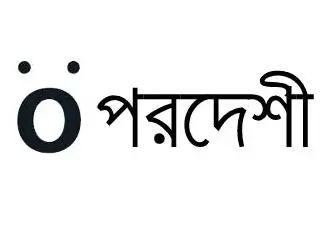


 Hair Care
Hair Care
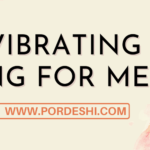 Vibrating Rings
Vibrating Rings

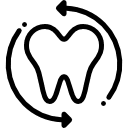 Oral Care
Oral Care
